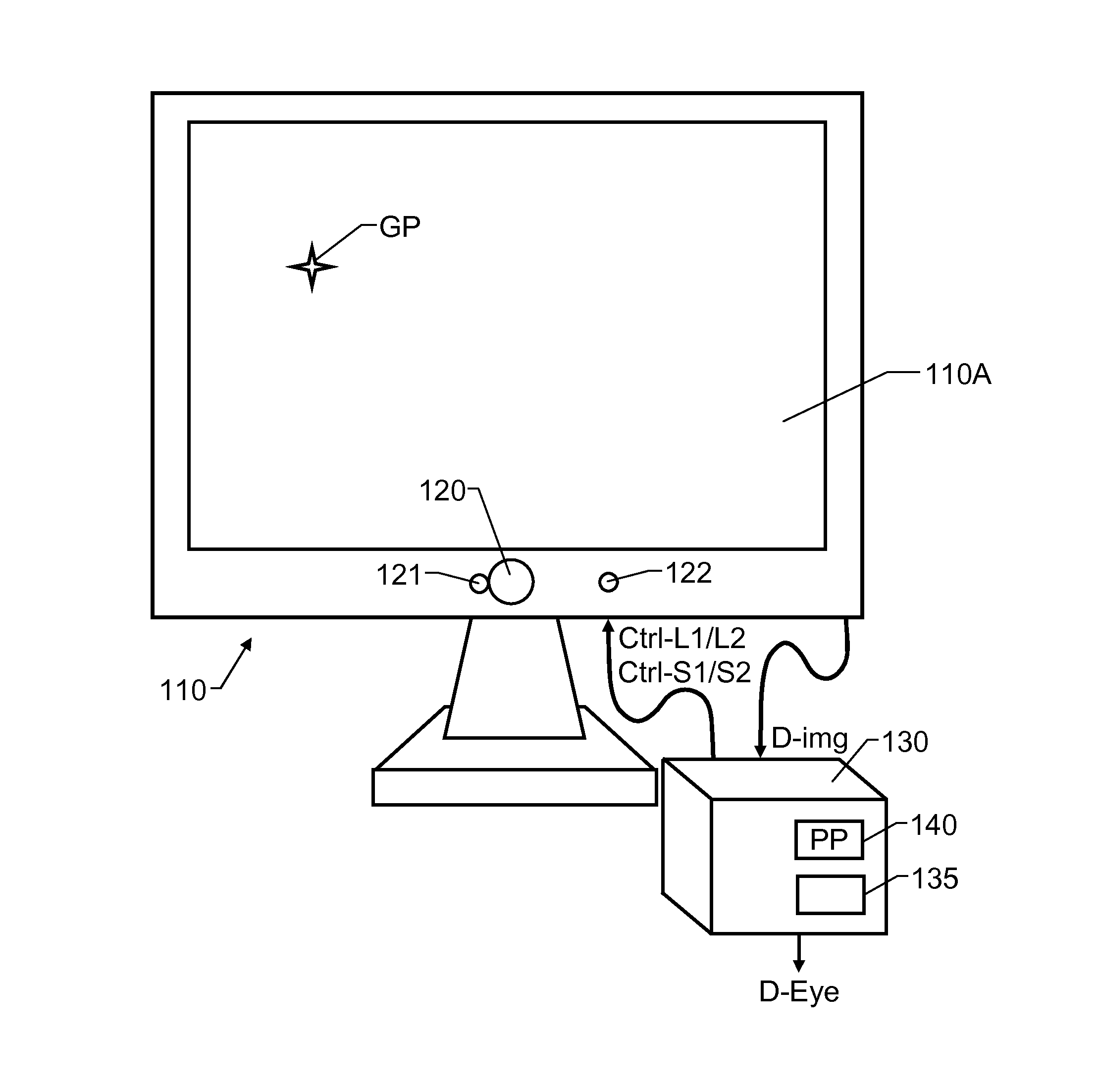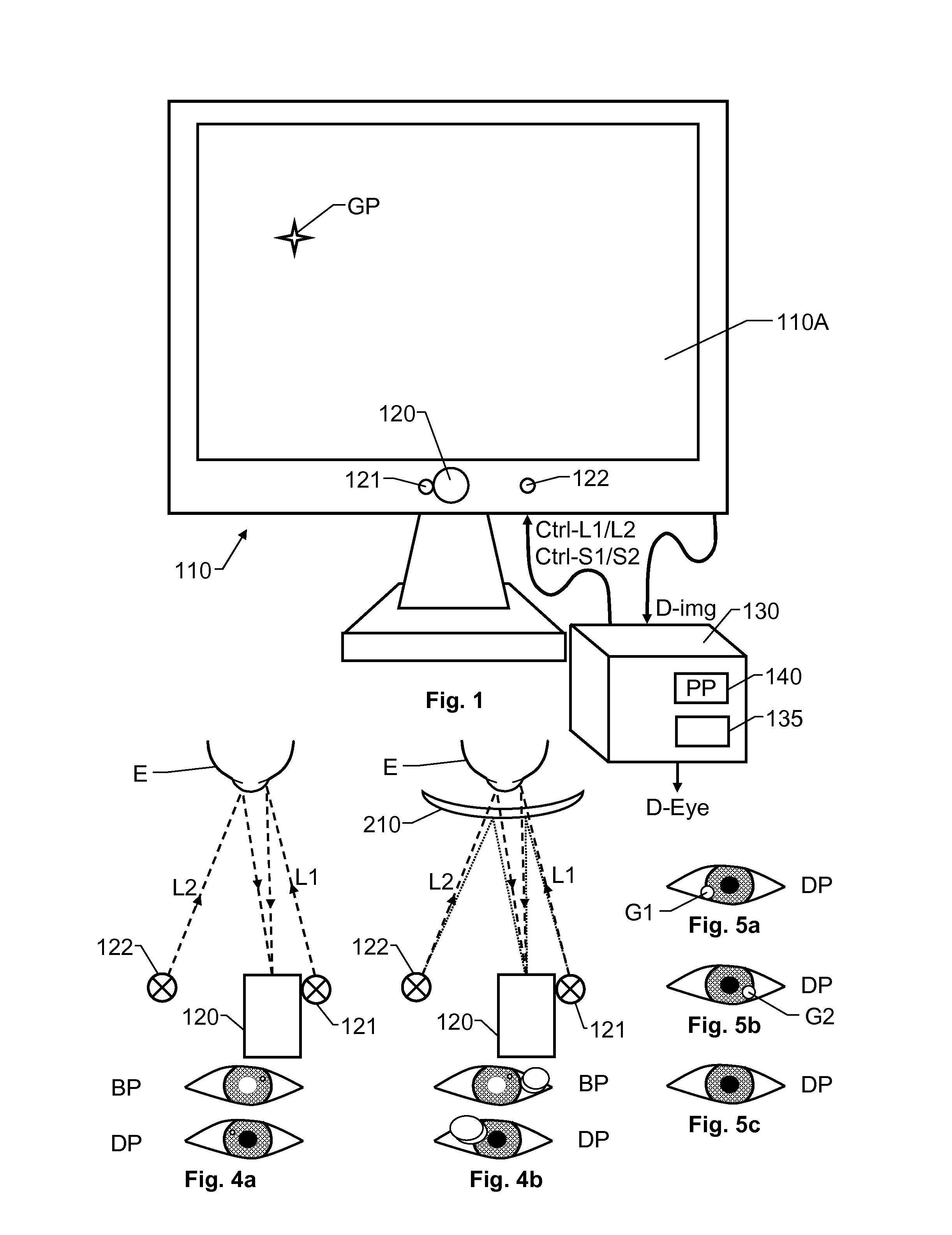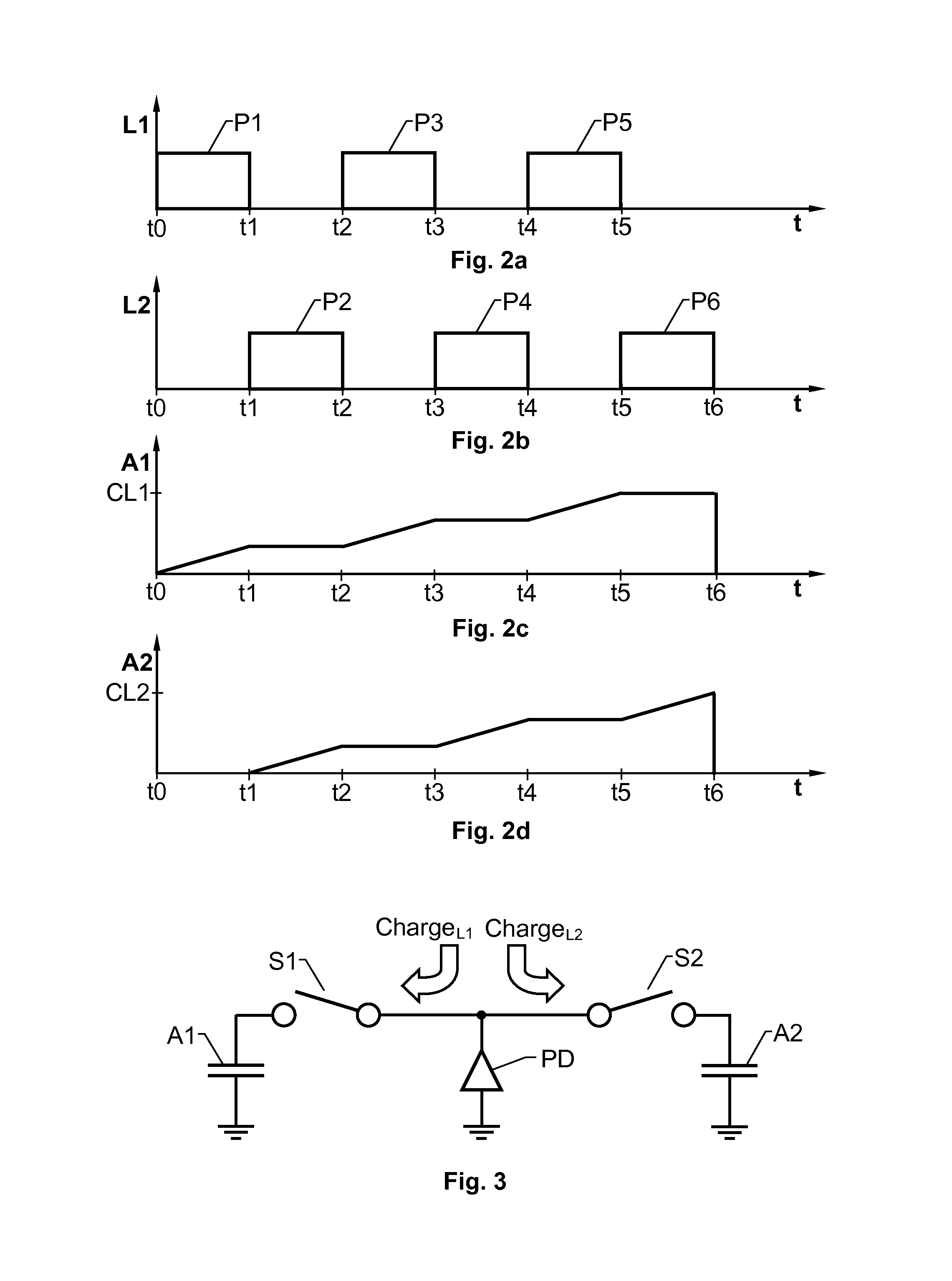Eye/gaze tracker and method of tracking the position of an eye and/or a gaze point of a subject
a technology of eye/gaze tracker and eye/gaze point, which is applied in the field of reliable tracking of the eyes and/or gaze points of the subject, can solve the problems of poor pupil/iris contrast, high cost and technical complexity, and suffer from motion-related errors
- Summary
- Abstract
- Description
- Claims
- Application Information
AI Technical Summary
Benefits of technology
Problems solved by technology
Method used
Image
Examples
first embodiment
[0040]FIG. 1 shows an eye / gaze tracker according to the invention. The eye / gaze tracker includes first and second light sources 121 and 122 respectively, an image registering means 120 and a control unit 130.
[0041]Each of the first and second light sources 121 and 122 is configured to illuminate an eye E of a subject. The image registering means 120 is configured to record image data D-Img representing the eye E. The control unit 130 is configured to control the light sources 121 and 122 as well as the image registering means 120. The image registering means 120 contains an image sensor with a plurality of light sensitive elements, or pixels, which each is associated with a photodiode PD, and that are preferably arranged in a matrix, i.e. as a first number of columns and a second number of rows. For example, in a 5 megapixel sensor (having in total 5 090 816 light sensitive elements), the first number of columns may be 2 608 and the second number of rows may be 1 952. The image sens...
second embodiment
[0069]FIG. 6 shows an eye / gaze tracker according to the invention, wherein a common illuminator unit 125 implements both a first light source and a second light source. The first implemented light source is configured to emit light L1 at a first center wavelength λ1 and the second implemented light source is configured to emit light L2 at a second center wavelength λ2 which is separated from the first center wavelength λ1 by at least 60 nm. Thus, the first light source may emit light at around 850 nm and the second light source may emit light at around 940 nm.
[0070]The common illuminator unit 125 is tunable, so that, in response to a wavelength control signal Ctrl-λ1 / λ2 it generates either the light L1 at the first center wavelength λ1 or the light L2 at the second center wavelength λ2. Furthermore, the control unit 130 is arranged to generate the wavelength control signal Ctrl-λ1 / λ2 such that the common illuminator unit 125 is caused to generate light L1 at the first center wavelen...
PUM
 Login to View More
Login to View More Abstract
Description
Claims
Application Information
 Login to View More
Login to View More - R&D
- Intellectual Property
- Life Sciences
- Materials
- Tech Scout
- Unparalleled Data Quality
- Higher Quality Content
- 60% Fewer Hallucinations
Browse by: Latest US Patents, China's latest patents, Technical Efficacy Thesaurus, Application Domain, Technology Topic, Popular Technical Reports.
© 2025 PatSnap. All rights reserved.Legal|Privacy policy|Modern Slavery Act Transparency Statement|Sitemap|About US| Contact US: help@patsnap.com



